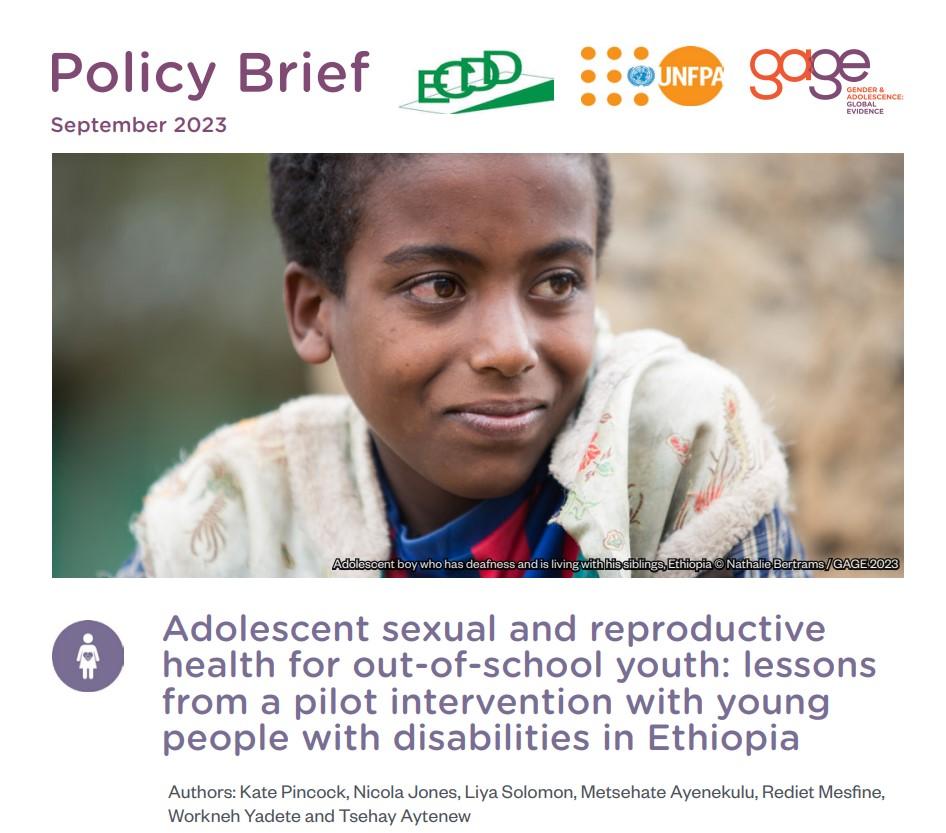Sexual and reproductive health is integral to the well-being and rights of adolescents and young people. Ethiopia’s 2016 National Adolescent and Youth Health Strategy seeks to improve the quality and accessibility of adolescent and youth health services. Around 17.6% of young people in Ethiopia have a disability (World Health Organization 2011). Ethiopia is a signatory to the United Nations Convention on the Rights of People with Disabilities, and its National Plan of Action on Persons with Disabilities (2012-2021) and Master Plan for Special Needs Education (2016-2015) have sought to improve inclusivity across sectors including education and health. However, adolescents and young people with disabilities in Ethiopia are often denied basic rights to education and healthcare due to the stigma attached to their disability and a lack of adapted services. As a result, they are vulnerable to sexual exploitation and violence, and have a lower overall level of knowledge about sexual and reproductive health and rights than their peers without disabilities (Population Council and the United Nations Population Fund (UNFPA), 2010; Kassa et al., 2016; Jones et al., 2018; Jones et al., 2021).
In 2020, the UNFPA launched a multi-phased initiative entitled ‘Reaching those most left behind through CSE (comprehensive sexuality education) for out-of-school young people’, which is currently being implemented in 12 countries, including Ethiopia. Through this initiative, UNFPA’s 2020 International technical and programmatic guidance on out-of-school CSE has been adapted to the specific context, needs and life experiences of selected groups of out-of-school young people, and then implemented with support from UNFPA. In Ethiopia, one of the selected groups of young people was young people with disabilities. Drawing on international technical guidance, a manual for Sexual and reproductive health and life skills education was developed by UNFPA Ethiopia with input from stakeholders from government agencies and non-governmental organizations (NGOs). The manual was then used by the Ethiopian Center for Disability and Development (ECDD), an NGO that works on disability-inclusive development, economic.
empowerment, inclusive higher education and sexual and reproductive health, to train young people with disabilities on sexual and reproductive health information and rights, and life skills. Sessions were conducted by trained peer educators selected by ECDD and trained by experts on sexual and reproductive health from other NGOs. The facilitators were trained in four large urban centres in Ethiopia: Hawassa city (Sidama region), Bahir Dar city (Amhara region), Adama city (Oromia) and Addis Ababa.

